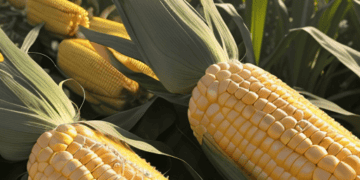The United States, through the office of the US Trade Representative (USTR), has initiated a dispute settlement panel under the North American trade pact (USMCA) regarding Mexico’s restrictions on genetically modified (GM) corn imports. This move comes after formal consultations failed to bridge the divide over the use of GM corn, a staple crop in the United States.
The dispute centers on a Mexican decree that bans the import of GM corn used in human food products like dough and tortillas, which the US claims contradicts scientific evidence and breaches commitments under the USMCA, effective since 2020. Washington’s stance is that Mexico’s measures against GM corn lack scientific basis and are inconsistent with the trade agreement’s stipulations.
The dispute settlement process, if ruled in favor of the US, could eventually lead to the imposition of tariffs on Mexican goods, marking a significant escalation in trade tensions between the two countries.
US Trade Representative Katherine Tai emphasized the importance of enforcing Mexico’s obligations under USMCA to maintain science-based regulations on agricultural biotechnology. She highlighted the critical role of American farmers in addressing climate and food security challenges through innovative practices.
Mexico, a significant importer of US corn, purchases around $5 billion worth annually, mostly GM yellow corn for livestock. This dispute follows 75 days of formal consultations initiated by the US in June.
While Mexico has proposed joint scientific research with the US on the health impacts of GM corn, Mexican officials claim their request was denied. The Mexican government asserts that its regulations align with USMCA obligations and contends that biotech corn could potentially harm native corn varieties and human health.
The Mexican government plans to phase out GM corn for human consumption and eventually for livestock feed, citing concerns over health effects. Mexican President Andres Manuel Lopez Obrador suggested a two-year period for importing yellow feed corn to conduct health studies.
The US has largely dismissed these concerns. US Agriculture Secretary Tom Vilsack stated that Mexico’s approach contradicts extensive evidence and scientific review, asserting the safety and environmental compatibility of biotech crops. He also noted the role of agricultural biotechnology in addressing global challenges like food security, climate change, and inflation.
Stay current with supply chain report news at The Supply Chain Report. For international trade resources, visit ADAMftd.com.
#USMexicoTrade #GMcorn #USMCA #TradeDispute #GeneticallyModifiedCorn #AgricultureInnovation #ScienceBasedRegulations #USTradeRepresentative #TradeTensions #MexicoAgriculture #BiotechCrops #AgriculturalBiotechnology #ClimateFoodSecurity #TradeAgreement #GMcornDebate #MexicoImports #USAgriculture #HealthConcerns #InternationalTrade #CornImports #LivestockFeed #SustainableAgriculture















